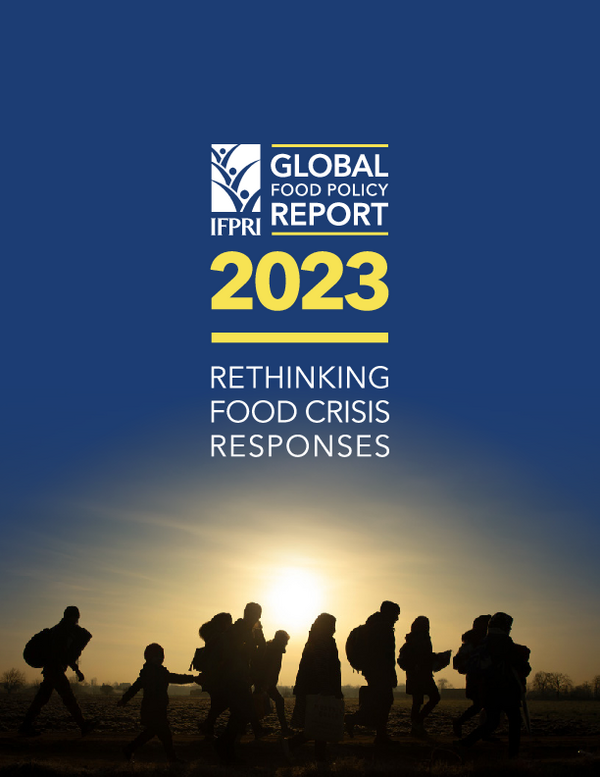- Share this article
- Subscribe to our newsletter
2023 Global Food Policy Report
The 2023 Global Food Policy Report, released by the International Food Policy Research Institute (IFPRI) in April 2023, calls for rethinking food crisis responses. It offers critical evidence that can help policy-makers, the private sector and the international development community heed calls for a more proactive response to food system shocks.
The report draws on a wealth of evidence built over many years by IFPRI and its partners, focusing on three key areas: crisis prediction and preparation, building resilience before and during crises, and making crisis response supportive and inclusive of women, forced migrants and other vulnerable groups.
The authors provide recommendations to address future crisis, pointing out that:
- Agrifood value chains are critical to supporting livelihoods and food security during crises; governments are well advised to maintain a business environment that fosters flexibility, technical and financial innovation, and to provide essential infrastructure and targeted assistance for at-risk value chain actors and nodes.
- Flexible, shock-responsive and carefully targeted social protection systems are essential for building resilience prior to a crisis and for facilitating recovery. Integrating social protection with gender and climate goals can promote gender equality and sustainability.
- Empowering women in crisis situations is crucial; they shoulder a disproportionate share of negative impacts. Collecting high-quality, gender-disaggregated data, directing funding toward programming that improves gender equality and ensuring that women’s voices are included in decision-making at all levels can support development, monitoring and achievement of clear gender equality goals amid crises.
- Forced migration associated with crises constitutes an important adaptation strategy. Migration can provide benefits for both hosting and sending communities when policies facilitate migrants’ integration into their host communities’ economies and support those who remain behind. Adoption of appropriate policies demands novel methods and analytical approaches to trace migration and its impacts.
- Larger and more effective financing and accountable governance are two vital and overarching requirements for bolstering resilience and improved crisis response.
(IFPRI/ile)
Visit the interactive website of the 2023 Global Food Policy Report





Add a comment
Be the First to Comment